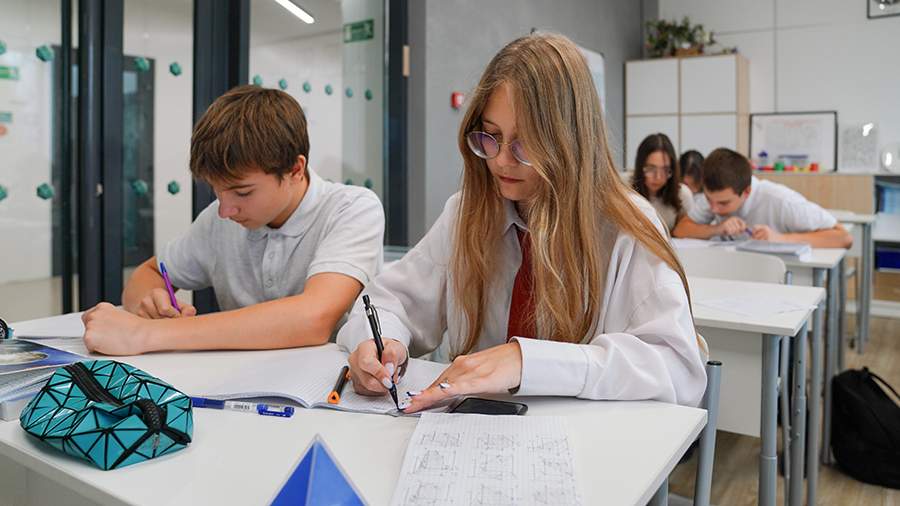"Talking About Important Things" January 13 - topic and lesson program
On Monday, January 13, Russian schools and colleges will host another session of the "Talking About Important Things" series. It is timed to coincide with the celebration of Russian Press Day. "Izvestia" tells how the lesson will be held in different classes and what will be discussed with students.
"Conversations about important" on January 13 - the theme of the lesson
The class "Day of the Russian press" is devoted to the history of the media in our country and their importance in the life of citizens. Pupils and students will learn what the first Russian newspaper was called, discuss the role of the printed press in the modern information space, remember what specialists work on the creation of periodicals, and try to present a project of their own newspaper.
Interactive presentations and video clips will help students master the material. The federal speaker will be Pavel Gusev, Editor-in-Chief of the Moskovsky Komsomolets newspaper. Methodological materials for the lesson are published on the project website.
"Talking about important things" on January 13 - lesson program
Pupils in grades 1-2 will be told about the main differences between a book, a magazine and a newspaper. They will also be introduced to the popular children's magazine "Murzilka" - pupils will learn some interesting facts about the publication and will be able to look at its pages. In addition, the children will talk about the main stages of media development and the importance of reliable information for society. At the end of the lesson, the junior schoolchildren will be offered to fill in a fillword related to the theme of the lesson.
Pupils in grades 3-4 will discuss in more detail the types of periodicals and their role in the life of the state. They will also be given the opportunity to discuss why paper magazines and newspapers are still relevant in the modern world, despite the development of the Internet and social networks. At the end of the lesson, children will be reminded of the specialists involved in the creation of periodicals and offered to choose topics for their own newspaper.
Pupils in grades 5-7 will learn who the "mass reader" is and get acquainted with the main functions of the press. They will be told about the composition of modern editorial offices and the duties of their employees. The students will also develop a layout of the class newspaper, which will last until the next "Talking About Important Things" session.
Children from grades 8-9 will take a closer look at the history of print media in Russia and other countries. In addition, students will be reminded of the need to verify information not only from digital sources, but also from print sources. They will also be told about the role of the press during difficult periods in Russia's history, such as during the Great Patriotic War. At the end of the class, students will be introduced to the profession of a war correspondent and its peculiarities.
High school students will discuss with teachers the importance of the printed press for people who lived in the past centuries. They will also be reminded of the exploits of journalists who wrote for frontline newspapers during the Great Patriotic War. In the final part of the class, students will be able to present their school newspaper project (if it is not produced at the school) or propose initiatives to develop an existing publication.
"Talking about important things" January 13 - about the project
"Conversations about Important" is a series of extracurricular activities devoted to the history, geography and culture of Russia, as well as current topics from the everyday life of schoolchildren and students. It was launched by the Ministry of Education of the Russian Federation in 2022. The lessons are held every Monday in all schools and colleges of the country.
The topic of the previous lesson was New Year's traditions of Russia. Students learned how many times Russians celebrate New Year's Eve, why the celebration takes place on the night from December 31 to January 1, and the names of the "colleagues" of Santa Claus and Snow Maiden from different regions of the country.
Переведено сервисом «Яндекс Переводчик»



